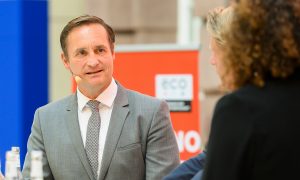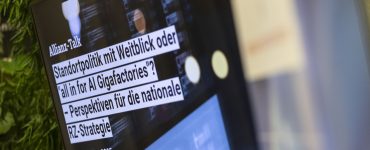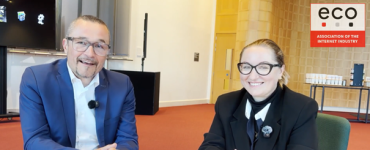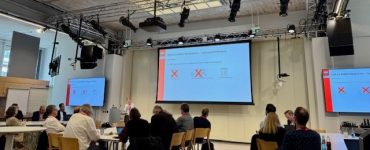Germany is hosting the Internet Governance Forum (IGF) for the very first time this year, which will take place from 25 to 29 November 2019 in Berlin. To kick off the conference, the German Federal Ministry for Economic Affairs and Energy (BMWi) has organized a High-Level Internet Governance Exchange, to which eco Chair of the Board Oliver Süme has been invited to participate. In interview, Süme offers insights into how the eco Association will be involved in the international conference.
Mr. Süme, what is the Internet Governance Forum all about?
The IGF is a conference that was initiated in 2006 by the United Nations, and it offers an ideal discussion platform for everyone who is interested in the topic of Internet Governance. Alongside governments, industry, and international organizations, this naturally also includes academia, civil society, and the technical community. At the annual conference, participants exchange ideas regarding the opportunities and challenges of increasing digitalization and analyze the possibilities for how we can exploit the full potential of the Internet in future. This touches on political, legal, and technical aspects, as well as social and ethical ones.
As an association, we expressly support this multi-stakeholder approach. On the question of how the Internet of tomorrow should be managed, we therefore need dialogue that occurs across country borders and involves – on an equal footing – all responsible parties. This aspiration should be pursued, given that digital transformation is gaining an ever increasing importance in politics, industry, and civil society.
How is eco involved in the IGF this year?
Already well in advance of the conference, eco was involved in accompanying and actively supporting the German federal government in the application process, so that Germany is host of the international conference this year for the very first time. At the IGF itself, the association is involved in a multitude of ways. For example, on the so-called “Day Zero” – the day before the beginning of the actual conference – it is organizing its own panel discussion on the Needs of SMEs for the Internet of the future. With this, we want to enable SMEs to get into direct dialogue with the Internet industry. At the same time, of course, we also wish to bring to the attention of the IGF community that SMEs must not be forgotten in digital-policy decisions.
Thomas Rickert, who leads the eco Competence Group Names & Numbers, will also participate as a speaker in a further panel on 27 November. Here, the discussion will revolve around how effective blocking access to illegal content on the DNS infrastructure layer is. We are also represented from 25 to 27 November in the IGF Village with our own booth – both analog and digital. This year, the organizers are working towards as paperless a format as possible, which the Association of the Internet Industry wishes to support. All information materials about eco are therefore available exclusively online in our digital trade fair booth.
I’m naturally also pleased to have been invited by the German Federal Ministry for Economic Affairs and Energy (BMWi) to take part in the Day Zero High-Level Internet Governance Exchange. Here, I would like to represent the Association of the Internet Industry and its members in the best possible way.
The High-Level Meeting brings together top-ranking international representatives from politics, industry, and civil society. What is this meeting dealing with in particular?
The High-Level Internet Governance Exchange enables a mutual exchange between important decision-makers from a range of work areas and world regions. On the question of how the Internet of the future should be managed, diverse views and perspectives therefore flow into the discussion. This guarantees that as many interests and aspects are taken into account as possible in our jointly developed proposals.
In what are known as Break-Out-Sessions, we will dedicate time to the three focal topics of this year’s Internet Governance Forum: Data Governance, Security & Safety, and Stability & Resilience. In the context of these sessions, I will above all be focusing on the aspect “Digital Inclusion”. Here, first and foremost, the question under discussion will be how disadvantaged population groups in particular can benefit from the economic developments that digital transformation brings. Together with Ralph Dommermuth, Chair of the Board at United Internet AG, and Norbert Westfal, Managing Director of EWE TEL GmbH and President of BREKO, I will be moderating the panel on one aspect of this topic, “Access & Infrastructure”, and I look forward to an insightful and result-oriented discussion.




